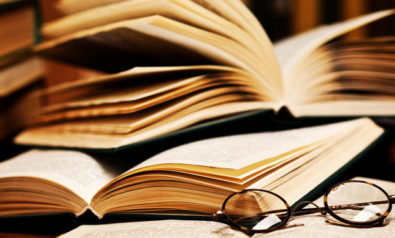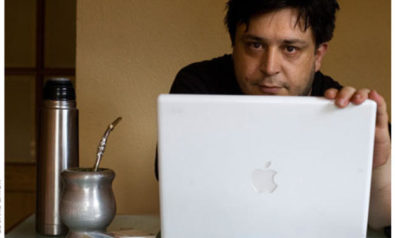Translating Kurdish, Iraqi, and other regional poetry has the power to shatter stereotypes, ease local tensions, and show the world a side of the region it has never seen.
Giggles. Such was the reaction Marie LaBrosse received every time she mentioned the name “Sheikh Raza” in her new hometown of Sulaimani in Kurdish northern Iraq.
LaBrosse had recently moved from the United States to become the chair of the English Department at the American University of Iraq, Sulaimani (AUIS). An avid poet and translator, she was eager to spend some time translating Kurdish poetry while immersed in the local language and culture. As she began her search for local poets, she quickly encountered the work of renowned classical Kurdish poet Sheikh Raza Talabani.
The more LaBrosse asked about Sheikh Raza, the more giggles she received and the more intrigued she became. Finally, someone cryptically explained to her: “He says what we don’t say.” Not yet having the language skills to translate Sheikh Raza’s poems on her own, LaBrosse knew she needed to find assistance.
The following semester, LaBrosse launched a translation class at AUIS, where she could teach the students translation skills and they could teach her about Kurdish and other regional poetry. The class, now in its second year, has done more than answer LaBrosse’s lingering questions about Sheikh Raza. It has helped bridge the East-West cultural divide, assisted students in addressing local tensions, built a poetry culture on campus, and contributed to the international literary conversation.
Shocking, 150-Year-Old Poetry
LaBrosse’s first class brought together seven students to tackle not only Sheikh Raza’s poetry, but also the work of other classical and contemporary Kurdish, Iraqi, and foreign writers. It was working with these students that LaBrosse finally found an explanation for the embarrassed reactions to Sheikh Raza’s name.
One of the students completed a rough transliteration of a Sheikh Raza poem, entitled “The Bulgarian Boy.” It was a homosexual love poem about a male prostitute — written 150 years ago by a religious figure. That fact alone would have been shocking enough, but the language used in the poem was even more surprising.
As LaBrosse read the two-page translation, the student who had handed it in watched her with a smile and an expression that said, “Is she going to crack?” LaBrosse had been lecturing the students for weeks about the need for artistic maturity and a professional demeanor.
LaBrosse flipped the page and was greeted with several lines of poetry that explicitly described sexual actions between the male protagonist and the prostitute. It took every ounce of self-control she could muster to keep a straight face and to remember what she always told her students: “These are not our words that we are saying to each other; these are artistic pieces that we are serving.”
Translation as a Mouthpiece
“The Bulgarian Boy” is among the most explicit and shocking of Sheikh Raza’s poems that LaBrosse has encountered, but his other works, which address such topics as faith, doubt, sex, aging, and marriage, show that he was in fact a complex character. LaBrosse describes one of his poems as a “gorgeous treatise about language and theology.”
“[It’s as if] he’s saying, ‘Don’t forget that I’m complicated. I write curse poetry but I am a man filled with faith,’” she notes.
It is because of this complexity that LaBrosse sees value in translating the works of Sheikh Raza and other regional poets. They highlight a side of the region that the outside world typically does not see.
Another classical Kurdish poet, Jamil al-Zahawy, discusses in one of his poems his frustration with stereotypes, which fail to acknowledge the diversity of his people. He laments that “this one and those became confused,” by which he means that this person who holds certain beliefs was assumed to be the same as those people who hold different beliefs.
According to LaBrosse, classical Kurdish poetry shows us “that this struggle in the Middle East to grow and change and be liberal and be perceived as complex and diverse is not recent.” In fact, one of the reasons that students are drawn to LaBrosse’s class is to help the outside world understand Iraq’s local culture and people. Darya Abdul-Karim, a student in this year’s class, suggests that “translation builds a bridge between people from different cultures.”
Abdul-Karim hopes that her translations of Kajal Ahmad, a contemporary female Kurdish poet who rebelliously criticizes men in her poetry, will act as such a bridge: “Whenever people think of Iraq from the outside world, especially the West, they probably just imagine a city like Baghdad, and they think that every other city is as bad as Baghdad. I wanted to translate [Ahmad] because I wanted to tell the world, ‘No, that’s not true. There are other people, and there are other problems. Our problems aren’t only political… The world only sees the political problems because of the way media works.”
Another student in the class, Mohammed Khaluq, views translation as “a way to understand other people, respect them, and feel empathy for them.” For his translation work, Khaluq chose to focus on contemporary Iraqi poet Ahmad Matar, who heavily criticized Saddam Hussein during his rule. Khaluq hopes his translations will help the world understand “the difficulties the Iraqis went through during… Saddam Hussein’s brutal regime.”
Addressing Cultural Tensions
LaBrosse sees cross-cultural benefits not only from the finished products but also from the translation process itself. Because Kurdish populations span a region that straddles the borders of Armenia, Iraq, Iran, Syria, and Turkey, Kurdish poetry incorporates a large number of languages — Arabic, Kurdish (including several dialects), Persian, and Turkish. In fact, each poem typically uses at least two different languages. As a result, the translation process must include individuals from a diversity of linguistic, cultural, and ethnic backgrounds, some of which have historically contentious relationships.
LaBrosse’s classes are no exception. More than nine languages were represented in her first class, and approximately 30 in her second. Many of the students come from Kurdish Iraq (in the north of the country), but others come from Arab Iraq — which has had a tense relationship with the north — or from outside of the country. If the students hope to effectively translate the poetry at hand, they have to work together, despite cultural differences.
LaBrosse makes it clear that the students have always treated each other with respect and that conversations have remained “productive, careful, and honest.” However, the students have also learned that they need to face the tensions in the room, rather than ignore them. LaBrosse explains: “The tensions exist, so if you’re not feeling them, it’s probably just because you’re not doing something that’s eliciting people to be honest about them.”
Abdul-Karim, who is Kurdish, admits that the class has taught her about more than just poetry. “I’ve learned that, especially with the poems [the Arab students] choose, even they have the same problems as we do, as I as a Kurd do,” she says. “I’ve learned to accept that the world is rich and that diversity is one of the main reasons why the world is rich and why it’s important to study other cultures and other people.”
Local and International Audience
With the semester having just ended, LaBrosse is working to compile an anthology of the students’ translations for publication. Last year’s anthology, The City of Nonexistence, was published in the University of Iowa’s literary magazine, 91st Meridian. In addition to the anthology, LaBrosse also organizes a poetry reading at the end of each semester, at which her students read for the local community.
Through the anthologies and readings, as well as visits from well-known Kurdish poets that LaBrosse invites to campus, she has given the students confidence as emerging scholars, turned the university into a hub for poetry, and provided a voice for Kurdish poetry in the international literary conversation.
A More Ambitious Project
LaBrosse’s experiences with her translation classes have sparked an even grander and more ambitious idea — compiling a comprehensive anthology of Kurdish poetry. She hopes to act as a facilitator, first working with scholars and experts from across the Kurdish region to identify the poetry to be included, then working with young people willing to learn the art of translation and contribute to the anthology.
LaBrosse faces many challenges ahead, not least of which navigating local tensions and allegiances in the publishing industry, but for her, the journey is worth it. Motivated by her passion for translation and her love for her students, LaBrosse hopes that through her anthology project she can continue to explore the poetic voices she has discovered in the past two years and participate in the artistic change happening in the community.
She is also motivated by her belief that Kurdish poetry deserves to be read across the world. “I feel like the moderate voice [in the region] is not heard,” LaBrosse explains, “the vast majority of people are likely very moderate, and we don’t hear from them.” Regional poetry is one of the places where moderate, and even radically liberal, viewpoints are openly expressed. “It’s important to give those people a microphone,” she asserts, “because they are speaking.”
For something as seemingly cerebral as poetry, LaBrosse has shown that not only is it relevant in our lives but it is also valuable for understanding each other as human beings, whether we live in neighboring ethnic regions or on opposite sides of the globe.
The views expressed in this article are the author's own and do not necessarily reflect Fair Observer’s editorial policy.
Image: Copyright © Shutterstock. All Rights Reserved
Support Fair Observer
We rely on your support for our independence, diversity and quality.
For more than 10 years, Fair Observer has been free, fair and independent. No billionaire owns us, no advertisers control us. We are a reader-supported nonprofit. Unlike many other publications, we keep our content free for readers regardless of where they live or whether they can afford to pay. We have no paywalls and no ads.
In the post-truth era of fake news, echo chambers and filter bubbles, we publish a plurality of perspectives from around the world. Anyone can publish with us, but everyone goes through a rigorous editorial process. So, you get fact-checked, well-reasoned content instead of noise.
We publish 2,500+ voices from 90+ countries. We also conduct education and training programs
on subjects ranging from digital media and journalism to writing and critical thinking. This
doesn’t come cheap. Servers, editors, trainers and web developers cost
money.
Please consider supporting us on a regular basis as a recurring donor or a
sustaining member.
Will you support FO’s journalism?
We rely on your support for our independence, diversity and quality.












Comment